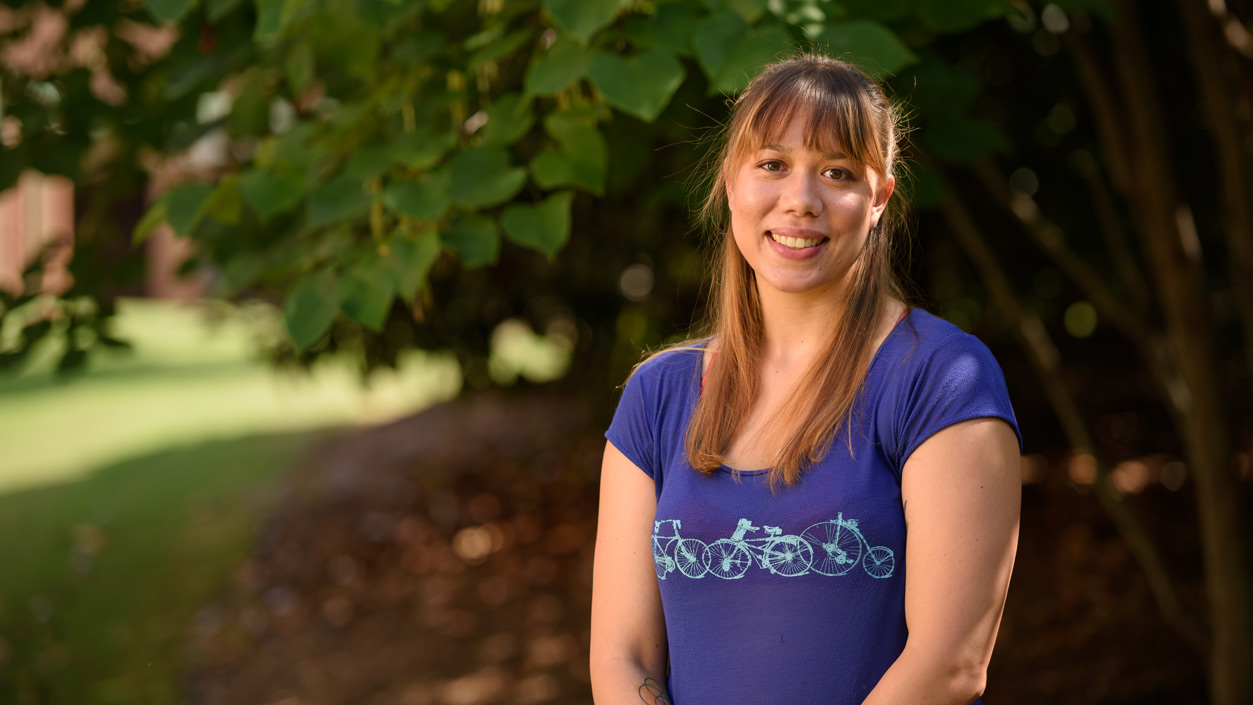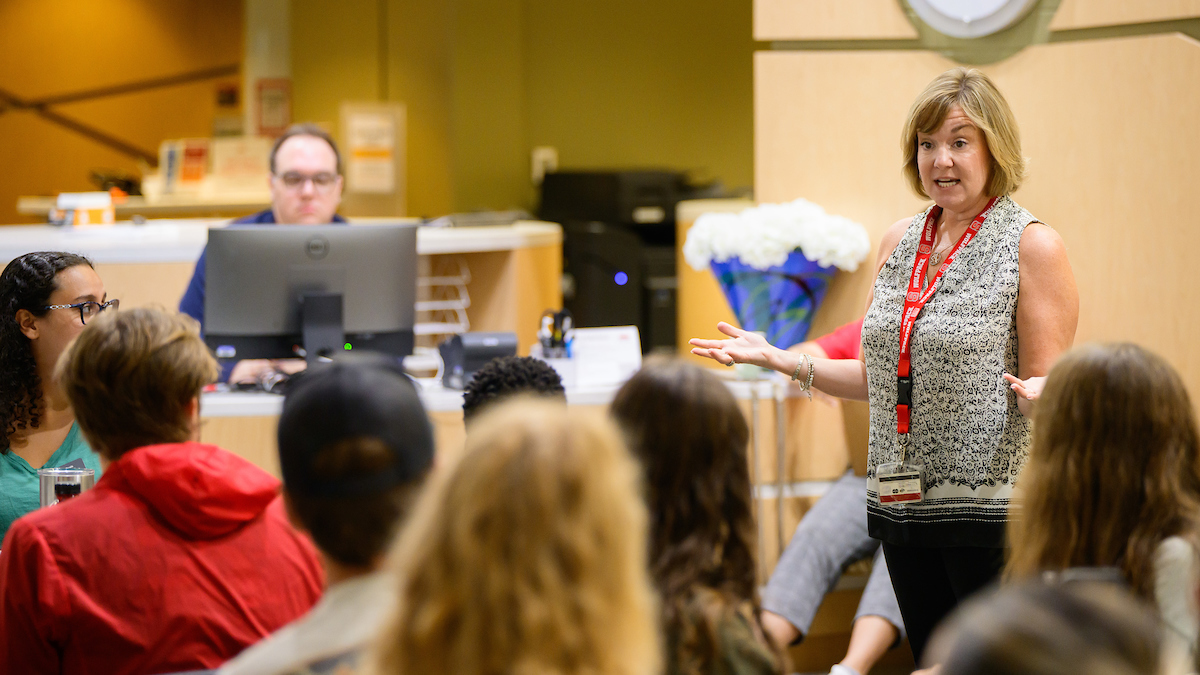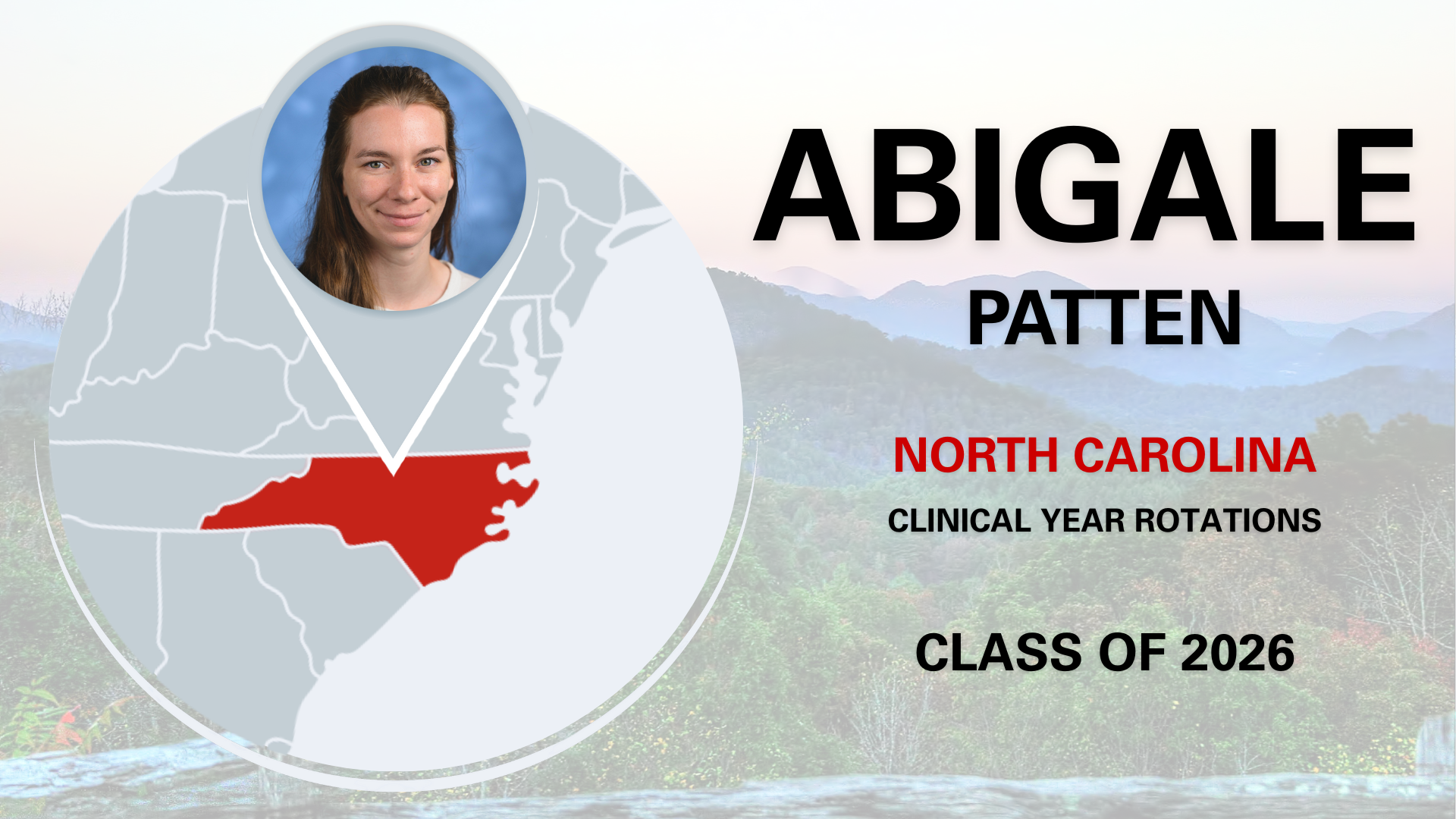Class of 2022: An Adventurous Path

After leaf cutter ants chewed through her tent in the Belize rainforest, Tala Woodward got up early the next morning, went on a hike and watched the macaws fly above the tree canopy.
Woodward embraces the unexpected. It’s an approach that led her extending a semester abroad in Belize to a year, renting a room in a local’s house and getting an internship with a conservation education group. For Woodward, the NC State College of Veterinary Medicine is another adventure in a life that has already been full of them.
“When I went to welcome weekend, I was pretty blown away,” said Woodward. “I didn’t realize how many opportunities there were for students here, particularly related to my interests. I picked the school that people really wanted to be at, where I felt really welcomed, where I felt that I would be supported and encouraged to succeed.”
Woodward grew up in Vienna, Va., just outside of Washington, D.C., where her father, a former Peace Corps member, worked for the World Bank and encouraged Woodward to travel as much as possible.
Becoming a veterinarian has long been on her mind; in fourth grade, she wanted to be a zookeeper. While in high school, she volunteered at the National Zoo and worked mostly with aquatic animals: crabs, lobsters, sea anemones. She almost majored in marine biology, but decided to widen her options by studying general biology at the College of William and Mary.
The Belize trip during her junior year would prove to be formative. The program was focused on sustainable development and introduced her to the fisheries industry, which must combine conservation management with economic viability. She began thinking like an ecologist.
“I was really into wildlife conservation,” said Woodward. “Then when I got to Belize I was realizing that so many of those problems with habitat destruction and poaching come from people problems, people who are malnourished or don’t have the economic means to support themselves. I thought that we had to help the people or we’re going to fail.”
After Belize, there was an internship with a law office supporting pet industry regulations. There, Woodward worked on a project related to conservation issues within the tropical fish industry. It looked good on paper but felt wrong. While she worked in a cubicle, a friend was interning in Alaska and posting pictures of mountains and wildlife. That, Woodward knew, was what she really should be doing.
Woodward came to Alaska the summer after graduation to work with Cook Inletkeeper, a nonprofit supporting the health of the 180-mile Cook Inlet waterway, the size of all of the Raleigh area’s greenways combined. Woodward was soon spending every day outdoors studying the impact of climate change on salmon streams.
I picked the school that people really wanted to be at, where I felt really welcomed, where I felt that I would be supported and encouraged to succeed.
The program also had a citizen-scientist program— volunteers used testing kits and reported the results — and when its coordinator resigned unexpectedly, Woodward was offered the job. She had only been in Alaska for a few weeks.
“I really wanted to learn more about the relationship between science and public policy,” she said. “Working with the volunteers in Alaska, we were translating science and learning how to talk to people about environmental health and conservation. I really enjoyed that aspect of science, bringing it to non-scientists.”
After a period of teaching English in South Korea, she worked as a lab and field technician at the University of Washington School of Aquatic and Fishery Sciences, where she would eventually earn a master’s in marine and environmental affairs. For her thesis, she pored over 20 years of water quality data on two Seattle-area lakes and explored what could happen to them in the next 20 years as the result of climate change.
A turning point came when she applied to work in the county government department that oversees lakes in Seattle and didn’t get the job. She switched things up, working for two years in a Seattle bike shop and loved it, especially the personal relationships she formed with customers.
Oddly enough, it’s her time at the bike shop that brought her to veterinary medicine.
“I was thinking about how there were things I loved about the bike shop, but I wanted to do science,” she said. “I was thinking about what career I can do that has all of it — the breadth of knowledge and experiences, the personal connections you make, the learning all the time. And, ta-da.”
~Jordan Bartel/NC State Veterinary Medicine
- Categories:


